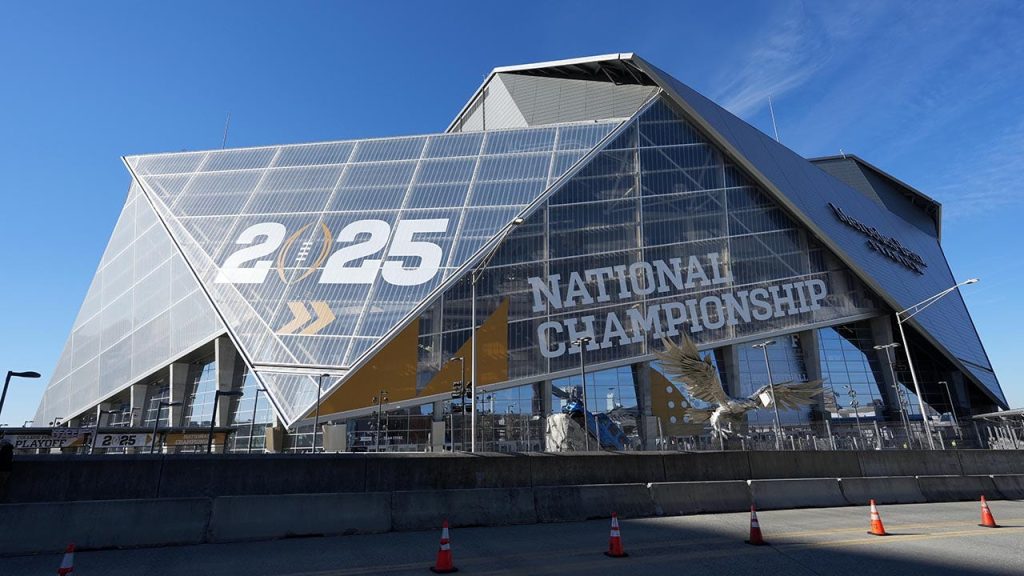The College Football Playoff National Championship game, a pinnacle event in American sports, descended upon Atlanta, Georgia, on a frigid Monday night, bringing with it not only the excitement of gridiron competition but also a heightened awareness of security in the wake of recent events. The city and state, mindful of the need to ensure the safety and well-being of attendees and residents alike, implemented a comprehensive security strategy that involved multiple agencies and a significant deployment of personnel. The presence of the Georgia Bureau of Investigations (GBI) was prominently displayed, with agents bundled against the biting cold, ready to respond to any potential threats. This visible presence, coupled with the behind-the-scenes efforts of various security forces, underscored the commitment to maintaining a secure environment for the championship game.
The chilling temperatures, with a forecast low of 17 degrees Fahrenheit, added another layer of complexity to the security preparations. Governor Brian P. Kemp declared a state of emergency to facilitate the deployment of necessary resources to mitigate the effects of the extreme cold. This proactive measure ensured that adequate resources, including personnel and equipment, were available to address any weather-related emergencies that might arise. The confluence of a major sporting event and extreme weather conditions presented a unique challenge for authorities, but the coordinated efforts of various agencies aimed to ensure a safe and secure experience for all involved.
The shadow of a recent tragedy loomed large over the festivities. A terror attack in New Orleans on New Year’s Day, just hours before the Sugar Bowl, prompted a reassessment and reinforcement of security protocols for the championship game. The incident served as a stark reminder of the vulnerability of large public gatherings and underscored the necessity of robust security measures. Atlanta officials, mindful of this recent tragedy, took proactive steps to enhance security, incorporating lessons learned from the New Orleans incident into their comprehensive security plan.
Atlanta Mayor Andre Dickens and Atlanta Police Chief Darin Schierbaum outlined the extensive security measures implemented for the game, which marked the second time Mercedes-Benz Stadium hosted the championship. While the city had prior experience hosting such events, the recent events in New Orleans necessitated an even more comprehensive and vigilant approach. Chief Schierbaum emphasized the all-hands-on-deck approach of the Atlanta Police Department, with every officer mobilized for the event. This comprehensive deployment aimed to create a visible deterrent and ensure a swift response to any potential incidents.
The security preparations extended beyond the stadium itself, encompassing the surrounding areas and incorporating specialized units from both the police and fire departments. These units were strategically positioned to provide rapid response capabilities in the event of any emergencies. The coordinated efforts of these specialized teams, equipped with advanced training and resources, aimed to minimize response times and effectively address any critical situations. This multi-layered security approach reflected the commitment to ensuring the safety and well-being of everyone in and around the stadium.
Adding to the logistical complexities, the city also hosted the annual Martin Luther King Jr. Day parade earlier on Monday. This significant event, honoring the iconic civil rights leader, required its own set of enhanced security measures and street closures. The seamless transition from the parade to the championship game festivities presented a significant challenge for city officials, requiring careful coordination and resource management. The successful execution of both events demonstrated the city’s ability to manage multiple large-scale events with overlapping security requirements.

